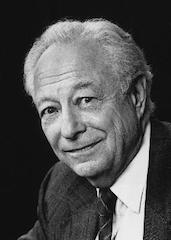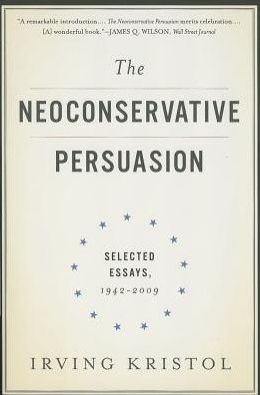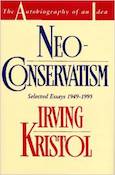The Neoconservative Persuasion: Selected Essays, 1942-2009
The essays in “The Neoconservative Persuasion”—all but one never before brought together in a book—are a remarkable introduction to one of the few people who actually liked being called a neoconservative. As Gertrude Himmelfarb, his widow, notes in the book’s fine introduction, Irving Kristol was “neo” from the very beginning, whether writing (under the party name of “William Ferry”) for a short-lived Trotskyist magazine, or serving as a co-editor of Encounter magazine or as an editor at the Reporter or Commentary, or creating (with Daniel Bell) the Public Interest, the influential quarterly journal about policy and politics. Kristol himself conceded, looking back, that he had been “neo” from the start: a neo-Marxist, a neosocialist, a neoliberal and a neoconservative.
What was “neo” about Kristol was not an ideology (he found all of them incomplete) but his view that no ideology could match the complexity of human nature, take properly into account the significance of religion or cope with the unintended consequences of public policies.
His critics insisted that whatever he and his admirers did was dictated by ideology. What his critics really meant, I suspect, was that a Jewish boy from a poor neighborhood in New York City who grew up during the Depression should be a liberal—and that if he was not, then “ideology” must be the reason. Kristol was indeed a liberal during much of his life (he voted against Barry Goldwater and worked in the 1968 Hubert Humphrey presidential campaign), but then the choice of George McGovern in 1972, as the Democratic Party’s presidential nominee, made his politics more conservative. He broke the bond: His background did not make him what people wanted him to be.
Neoconservatism, as the title of this collection suggests, is a “persuasion,” not an ideology. The word comes from Marvin Meyers’s book “The Jacksonian Persuasion” (1957), in which Meyers defines a persuasion as a “half-formulated moral perspective involving emotional commitment.” Kristol liked “tendency,” “impulse” and “cast of mind” as well. As a long-time contributor to the Public Interest, I think any of these words is right. How else can you bring together into a happy working relationship, as Kristol did, Daniel Bell (a democratic socialist), Pat Moynihan (a lifelong Democrat), Martin Feldstein (a conservative economist) and Robert Solow (a liberal one)?
What such figures had in common was a belief that it is a good idea to know more about proposed or enacted policies than can be inferred from an ideology or extracted from journalism. Such a belief amounted to an argument for social science, or at least for the kind of social science that tries to understand the facts that seem to demand action, the alternatives to government action, and the chances that a policy will have benefits that exceed its costs.
The views of Kristol and those who wrote for him became especially important because of two major developments in American life: the Great Society (the first issue of the Public Interest appeared in 1965) and the counterculture. The Great Society was an effort to show that a democratic government could do anything, the counterculture a movement that suggested it could do nothing. The first asserted that empowering poor people to challenge the status quo would end their poverty, the latter that student action would remake the human spirit. Kristol’s “neo” views included a decisive skepticism about both claims.
Perhaps the best place to start reading “The Neoconservative Persuasion” is one of its last articles, “An Autobiographical Memoir.” Published in 1995, it is Kristol’s summary of the people and events that shaped him. Two in particular stand out: the literary critic Lionel Trilling (whom Kristol calls a skeptical liberal) and the political philosopher and legendary teacher Leo Strauss (whom he calls a skeptical conservative). Trilling explained in “The Liberal Imagination” (1950) that the great modern writers (T.S. Eliot, William Butler Yeats, Franz Kafka, William Faulkner) portrayed human behavior in ways that refuted the claims of socialists that we could all become brothers. Strauss restored the importance of ancient thinkers as a way of understanding ourselves.
Trilling thought that great novelists and poets understood people better than social scientists, while Strauss refused to accept the Enlightenment view that “the truth will make you free.” Strauss believed, Kristol emphasizes, that the truth would make some people free but enslave others if that truth were not anchored in prudence and natural law. As Kristol reminds us, Strauss, contrary to the caricature that has emerged in recent years, was not a right-wing ideologue. As a student in two of his classes, I can attest that Strauss never uttered a word in support of or in opposition to any public policy.
Kristol decided that the success of neoconservatism arose from its having enlarged “the conservative vision to include moral philosophy, political philosophy, and even religious thought,” thereby making this persuasion “more politically sensible as well as politically appealing.” Perhaps, he added, this has helped make the Republican Party more interested “in the pursuit of happiness by ordinary folk” rather than just in the success of the business community.
Kristol’s neoconservative persuasion put him in opposition not only to conventional liberalism but to parts of American conservatism: He accepted many aspects of the New Deal (Social Security, unemployment insurance) and was upset when business leaders urged him to teach his students about the virtues of the profit motive—there are such virtues, he conceded, but he believed that we may accept them without celebrating them. As for “The Neoconservative Persuasion,” it certainly merits celebration. The publisher’s decision not to provide an index is the only defect in this wonderful book.
Book Review from The Wall Street Journal, by John Q. Wilson
- The Author

Irving Kristol
Irving Kristol was one of the great essayists, editors, and public intellectuals of the twentieth century, was at the center of a […] More about Irving Kristol.
- Books by the Author















